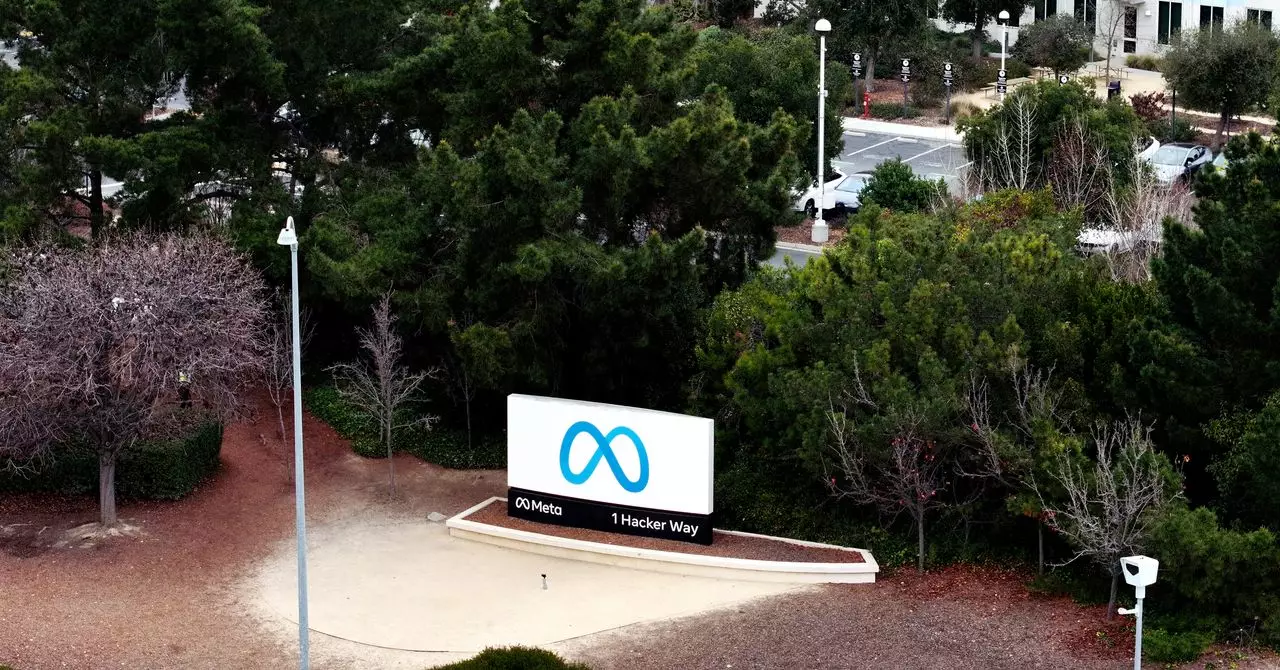In a striking move, Meta Platforms, Inc. has begun a radical transformation in its approach to content moderation, prioritizing “free expression” over stringent regulatory enforcement. Announced in January, this shift signals a willingness to embrace a wider spectrum of online discourse, despite the inherent risks. As reported in Meta’s latest Community Standards Enforcement Report, the effects of this policy change have resulted in a notable decline in content removals across Facebook and Instagram—down nearly one-third from the previous quarter. This substantial reduction begs the question: Are we witnessing a refreshing embrace of free speech, or is this a reckless gamble with societal norms?
The figures are compelling: Meta reported removing approximately 1.6 billion posts between January and March 2023, a marked decline from nearly 2.4 billion in the previous quarter. This dramatic reduction encapsulates a broader trend within the platform, revealing that not only has enforcement decreased overall, but specific categories—such as anti-hate speech, spam, and child endangerment—have also seen significant drops in content takedowns. And while automation tools are under scrutiny, Meta claims that fewer enforcement errors have led to better decision-making overall. This raises an important debate surrounding the balance between human judgment and machine efficiency in maintaining safe online environments.
A Double-Edged Sword of Free Expression
Meta’s decision comes at a time when discussions of free expression are at the forefront of societal discourse, especially in the wake of global movements advocating for individual rights and freedoms. CEO Mark Zuckerberg has candidly acknowledged that previous moderation policies were often “out of touch with mainstream discourse.” The new guidelines allow for language that many activists previously deemed hateful, particularly against marginalized communities, such as immigrants and LGBTQ+ individuals. For instance, the allowance of “allegations of mental illness or abnormality when based on gender or sexual orientation” illustrates a contentious shift that may potentially stoke societal divisions and impact vulnerable populations.
Critics have voiced concerns over whether the relaxation of these rules facilitates harmful narratives that undermine the safety and dignity of marginalized communities. It’s imperative to question whether the pursuit of unfettered expression justifies opening the floodgates to hate speech. As platforms become integral to societal communication, should they not strive for a nuanced approach that protects both free speech and vulnerable individuals? This inherent conflict presents a complex dilemma.
Automation, Human Oversight, and Future Implications
While Meta has diminished its reliance on automated systems—known for their high error rates—it has not entirely abandoned them. According to the report, automated filters removed 97.4 percent of posts under the hate speech policies for Instagram, a slender decrease from prior quarters. However, a marked decline was observed in the removal of bullying and harassment on Facebook, hinting at an evolving strategy.
The importance of human oversight cannot be overstated, especially when the stakes include personal safety and social cohesion. As Meta strives to refine its moderation approach, the challenge lies in finding the sweet spot between effective content regulation and the avoidance of stifling genuine discourse. This balancing act is crucial not only for user experience but also for the long-term sustainability of online platforms.
The Road Ahead for Meta
The implications of Meta’s modified enforcement policies will unfold over time, and the technical and ethical challenges they face will require continuous reassessment. While the company’s claims of reducing erroneous removals foster optimism for more accurate and fair decision-making, the implications of amplified free expression remain a substantial concern.
Ultimately, Meta is walking a tightrope—one that demands vigilance and adaptability amid a rapidly evolving digital landscape. As discussions surrounding free expression progress, so too should companies’ commitments to ensure that the implementation of policies enhances, rather than diminishes, the fabric of civil discourse. This ongoing debate encapsulates the essence of our times: navigating the complex interplay of free speech, corporate responsibility, and societal welfare. It is a discourse that will shape not only Meta’s future but the broader realm of digital communication itself.

